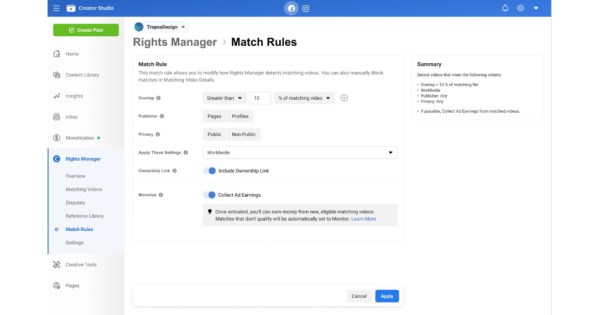Russian YouTubers can no longer derive
an income from the Google-owned video platform, who earn an estimated $100
million a month from the service since March 10 – due to Google shutting down
its advertising services for users from the Russian Federation.
“We woke up in the morning, and I received a message on my phone that, allegedly, due to the situation (Russia’s war against Ukraine), monetization has been turned off…” one Russian vlogger – with a rather modest audience of 231,000 subscribers – has been quoted as saying.
“Now everyone is gloating that monetization has been turned off, you can finally get a proper job.”
And although his “posts” are quite removed from today’s realities – life in the countryside, subsistence farming, cooking in a stone oven, etc. – the new restrictions imposed by the American video hosting giant have affected him too.
It isn’t only vloggers from Russia who have lost their earnings from YouTube monetization: YouTube’s new policy affects allother content views from the territory of the Russian Federation. That is, vloggers from other countries, whom Russians watch, will also not make money in this market, explains Vera Slivinskaya, head of international business development at AIR Media-Tech, a company helping vloggers monetize video content on different platforms, and brands to promote themselves through influencers. Interestingly, the YouTube service itself remains available to Russians.
That is, people can create a new channel and upload videos to it, but without monetization, this can’t be anything beyond a unpaid hobby. Therefore, vloggers who rely on YouTube as their primary source of income – and creating content requires a lot of time and investment – are forced to seek other ways to earn money.
YouTube’s new policy is cautious and balanced, comments Slivinskaya: they’re introducing these restrictions gradually. Both YouTube and Google are not yet blocked on the territory of the Russian Federation, and this is good, because those who want to find objective information still have the chance to do so, Slivinskaya notes. She also supports the implemented restrictions, including de-monetization.
“We’re looking at a situation where vloggers with content completely unrelated to socio-political topics, with the outbreak of war, began to cover the situation in Ukraine,” she points out.
“And the content made by Russian vloggers does not always reflect it objectively. Instead, thanks to this hype, their views and income have skyrocketed many times over.”
According to NV, there are currently 418,000 content creators from Russia registered on the platform – this figure includes both vloggers and media company accounts. They collectively generated about 74 billion views in January, which brought the creators about $100 million a month. This is just earnings from ad-monetized content – YouTube’s own income is not taken into account, and amounts to almost the same figure.
Insta-bye
Yandex.Zen is a content creation platform for vloggers and media companies owned by the Russian tech firm Yandex. The platform is one of the alternatives for influencers from the aggressor country. But earnings on it will be far lower, experts say.
Many popular YouTube vloggers will lose the audiences they have built for years. And it is highly questionable whether they will be able to recruit those subscribers again on new platforms: Rutube, OK, and Yandex.Zen, explains Nikolay Roginets, CEO of Genesis MCN, another YouTube partner company.
“Those who start right now – before YouTube is completely blocked – to redirect their audiences to their accounts in these networks, may be able to retain some,” he believes.
“But it will definitely not work out quickly and completely.”
Besides, the exodus of companies and the economic crisis will further dent advertising budgets.
“Now that the Russian Federation has fallen into an economic crisis, there will be a decline in advertisers, and there will hardly be the necessary income levels for vloggers to live off (content creation),” says Slivinskaya.
The majority of Russian-speaking vloggers from Ukraine will also feel change, due to a large proportion of their audience coming from the Russian Federation, experts claim.
Although the current state of the Ukrainian economy is also not conducive to making money on advertising, the future of Ukrainian-language vloggers looks optimistic, as content creators pivot to domestic, diaspora, and global audiences instead, and experts expect an increase in the number of Ukrainian YouTube channels.
At the same time, we can expect a significant decrease in Russian-language content on the platform, adds Slivinskaya. And some of the Ukrainians using Russian in their content will switch to their mother tongue.
In addition, Ukrainian YouTubers will be able to take advantage of the fact that they’re part of the modern world, and can speak easily to a European and even global audience, in contrast to Russians facing new restrictions on their virtual lives.
Moreover, YouTube announced that it was beginning to block Russian state media channels around the world. Because of this, media experts believe that the complete blocking of YouTube – now at the initiative of Moscow – is merely a matter of time.
The state media watchdog Roskomnadzor had already begun blocking Instagram on March 14.
“This decision will cut 80 million users in Russia off from one another, and from the rest of the world, as approximately 80% of people in Russia follow an Instagram account outside their country,” said Adam Mosseri, head of Instagram.
Instagram bloggers with millions of followers are a story in their own right.
“If they [a blogger] created content solely for Instagram, they have no alternatives. There are no similar or even remotely similar social networks in the Russian Federation in terms of functionality,” add Roginets.
“This is a serious barrier.”
There were about 1,100 Instagram bloggers with at least 1 million subscribers based in Russia.
“Russia is following in China’s footsteps with limited access to all global platforms,” Slivinskaya concludes.
Follow us on Twitter, Facebook and
Google News









